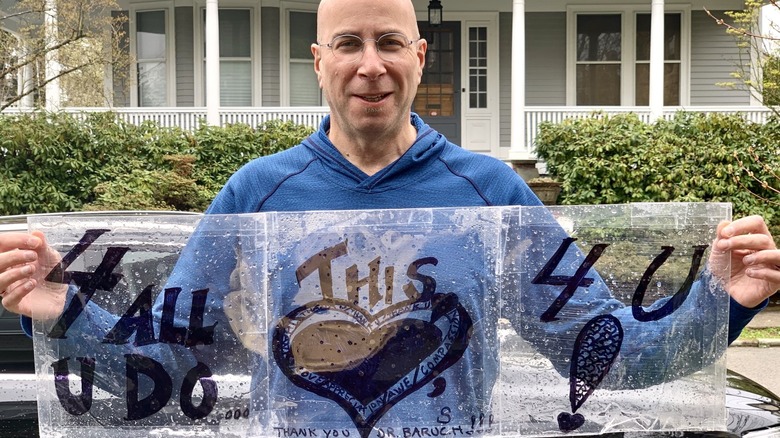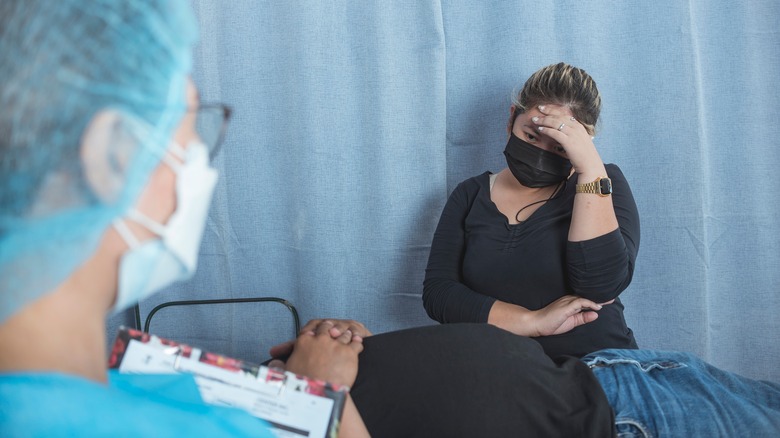Emergency Room Doctor Jay Baruch Explains How To Advocate For A Loved One In The ER - Exclusive
Bringing a loved one to the emergency room is stressful and difficult for everyone involved. When you're distraught about your loved one's health and go into tunnel vision mode with the goal of getting them the best care possible, your ability to communicate effectively with the doctors and nurses in the ER may all but disappear. Additionally, in the chaos of getting your loved one to the hospital and seen by a professional, your ability to recall crucial details is diminished.
While these situations are completely normal and understandable, they limit your ability to be an effective advocate for your loved one's needs. Though you can rarely prepare for a trip to the emergency room at the moment it needs to happen, Dr. Jay Baruch says there are some simple things you can do to prepare for any visits that may need to happen in the future.
In an exclusive interview with Health Digest, Dr. Baruch explained what information you should be prepared to give ER staff, how to prepare for a trip to the emergency department, and how to be the best possible advocate for your loved ones.
How to help doctors get the information they need
Dr. Jay Baruch emphasized that doctors don't expect family members to know what details the doctors need, and they know that it's hard to remember when you're stressed and worried. He said one of the best things you can do as an advocate for a loved one is to jot down important information.
"Don't be afraid to bring notes. If you're worried you might omit a vital detail or want to get certain dates right, then write it down," he said. "An up-to-date medication list is also very helpful, and include any medication allergies."
Dr. Baruch added that it's essential to be completely honest and tell the doctors the whole story.
"Please don't withhold what might be important information that you might consider embarrassing, anxiety-provoking, and highly personal," he stressed. "Please mention if there are others in the room and you'd prefer not to share it with them."
Even if you can't go to the hospital with your loved one, you can still be an effective advocate from wherever you are with a simple phone call to the hospital where your loved one is being seen. "Be sure to share with the healthcare team — nurses and doctor — the name and contact phone number of someone," he explained. "Ask if they can make sure that it's in the medical record."
Use your voice, respectfully
Most importantly, Dr. Jay Baruch said, "Don't be afraid to speak up." Often, details provided by family members are the key to a proper diagnosis, so never be afraid to bring up something you think is relevant.
"Please share if you feel we've cut you off prematurely or that we're leaving the room when there's more you wanted to tell us," he insisted. "If there's anything you don't understand, please ask us to repeat what we said or explain it in more detail. Please, ask questions."
He added that it's always okay to approach the staff if you've been waiting a long time, if your loved one's condition has changed, or if you feel like your family member has been forgotten in the chaos of the ER, but he suggested you do so as respectfully as possible.
"Remember, the ER staff is doing their best under often trying circumstances," Dr. Baruch said. "We're on your side."
Dr. Baruch's new book, "Tornado of Life: A Doctor's Journey through Constraints and Creativity in the ER," will be released on August 30, 2022.



